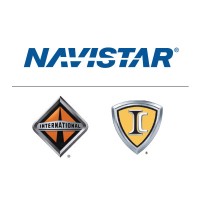
Navistar Inc
We were Navistar, but we are getting back to our roots as International. Follow us at International and join us on the road ahead.



We were Navistar, but we are getting back to our roots as International. Follow us at International and join us on the road ahead.

Founded in 1975, Motherson is one of the world’s leading auto component makers, supplying OEMs globally from over 400 facilities in 44 countries spread across five continents with over 190,000 employees. Within the automotive industry, it is one of the leading global manufacturers of exterior rearview mirrors, wiring harnesses and polymer modules and has a diversified industry-leading portfolio of auto ancillary products and services that make it a full system solutions provider for its customers across the globe. Driven by technology and innovation, Motherson connects these attributes with creativity, employee participation and performance excellence to create world-class products, services and solutions for its customers globally. Motherson believes its employees are its partners in progress, its biggest asset. The organisation nurtures an environment where employees thrive as dynamic professionals and individuals. The organisation is responsive to the professional aspirations of its employees and provides them with a plethora of growth opportunities, allowing them to grow and evolve professionally and spearhead strategic positions within the organisation.
Security & Compliance Standards Overview












No incidents recorded for Navistar Inc in 2025.
No incidents recorded for Motherson Group in 2025.
Navistar Inc cyber incidents detection timeline including parent company and subsidiaries
Motherson Group cyber incidents detection timeline including parent company and subsidiaries
Last 3 Security & Risk Events by Company
Angular is a development platform for building mobile and desktop web applications using TypeScript/JavaScript and other languages. Prior to versions 19.2.16, 20.3.14, and 21.0.1, there is a XSRF token leakage via protocol-relative URLs in angular HTTP clients. The vulnerability is a Credential Leak by App Logic that leads to the unauthorized disclosure of the Cross-Site Request Forgery (XSRF) token to an attacker-controlled domain. Angular's HttpClient has a built-in XSRF protection mechanism that works by checking if a request URL starts with a protocol (http:// or https://) to determine if it is cross-origin. If the URL starts with protocol-relative URL (//), it is incorrectly treated as a same-origin request, and the XSRF token is automatically added to the X-XSRF-TOKEN header. This issue has been patched in versions 19.2.16, 20.3.14, and 21.0.1. A workaround for this issue involves avoiding using protocol-relative URLs (URLs starting with //) in HttpClient requests. All backend communication URLs should be hardcoded as relative paths (starting with a single /) or fully qualified, trusted absolute URLs.
Forge (also called `node-forge`) is a native implementation of Transport Layer Security in JavaScript. An Uncontrolled Recursion vulnerability in node-forge versions 1.3.1 and below enables remote, unauthenticated attackers to craft deep ASN.1 structures that trigger unbounded recursive parsing. This leads to a Denial-of-Service (DoS) via stack exhaustion when parsing untrusted DER inputs. This issue has been patched in version 1.3.2.
Forge (also called `node-forge`) is a native implementation of Transport Layer Security in JavaScript. An Integer Overflow vulnerability in node-forge versions 1.3.1 and below enables remote, unauthenticated attackers to craft ASN.1 structures containing OIDs with oversized arcs. These arcs may be decoded as smaller, trusted OIDs due to 32-bit bitwise truncation, enabling the bypass of downstream OID-based security decisions. This issue has been patched in version 1.3.2.
Suricata is a network IDS, IPS and NSM engine developed by the OISF (Open Information Security Foundation) and the Suricata community. Prior to versions 7.0.13 and 8.0.2, working with large buffers in Lua scripts can lead to a stack overflow. Users of Lua rules and output scripts may be affected when working with large buffers. This includes a rule passing a large buffer to a Lua script. This issue has been patched in versions 7.0.13 and 8.0.2. A workaround for this issue involves disabling Lua rules and output scripts, or making sure limits, such as stream.depth.reassembly and HTTP response body limits (response-body-limit), are set to less than half the stack size.
Suricata is a network IDS, IPS and NSM engine developed by the OISF (Open Information Security Foundation) and the Suricata community. In versions from 8.0.0 to before 8.0.2, a NULL dereference can occur when the entropy keyword is used in conjunction with base64_data. This issue has been patched in version 8.0.2. A workaround involves disabling rules that use entropy in conjunction with base64_data.